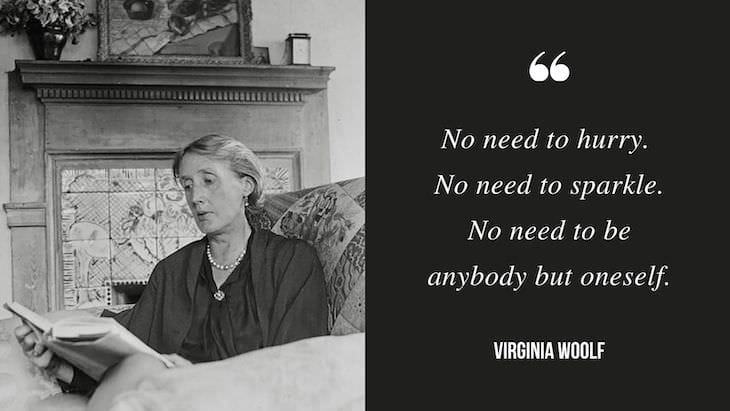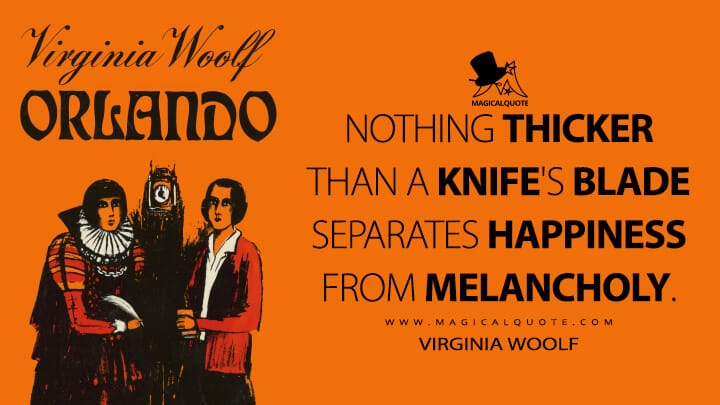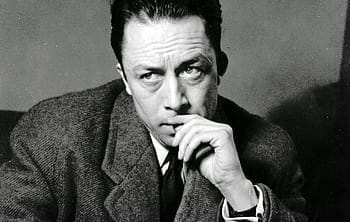Why Read Virginia Woolf Today?
Virginia Woolf is a notable figure in literature, feminism, and modernism. An acclaimed novelist, essayist, and critic, Woolf redefined storytelling. She had a profound influence on 20th-century literature. Her works delve into themes of identity, consciousness, and the complexities of human relationships, making her a timeless figure in literary history.
This blog post will examine Virginia Woolf’s life and literary contributions. It will also discuss why her works still inspire readers and thinkers today.
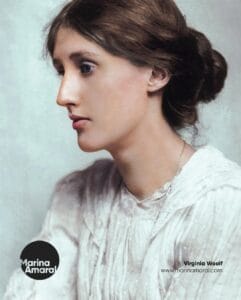
A Glimpse into Virginia Woolf’s Life
Born on January 25, 1882, in London, Virginia Woolf (née Adeline Virginia Stephen) grew up in a home of artists and thinkers. Her father, Sir Leslie Stephen, was a noted historian and biographer. He was also a philosopher. Her mother, Julia Stephen, was a philanthropist and a model for pre-Raphaelite painters.
Despite these privileges, Woolf experienced personal tragedy in her life. She lost her mother at 13. Then, her half-sister died two years later. Her father died when she was in her early twenties. These losses deeply affected her mental health and artistic expression.

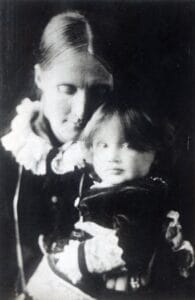
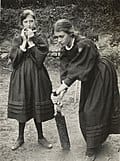
Woolf married Leonard Woolf, a writer and political thinker, in 1912. In 1917, they founded the Hogarth Press, a publishing house. It would later publish her works and those of T.S. Eliot and Sigmund Freud.

Virginia Woolf’s writing is celebrated for its groundbreaking approach to storytelling. She is a pioneer of modernist literature. She used techniques like stream of consciousness to capture human thought.

In a fast-paced world, Woolf’s works offer a chance to pause and reflect on the richness of life. Her writing urges readers to reflect on their lives, relationships, and place in the world.
Virginia Woolf profoundly influenced the world. She wrote groundbreaking literature, advocated for women’s rights, and explored the human psyche. Her work transcended her time. It left a legacy that still inspires readers, writers, and activists. Here’s how she changed the world:
She Revolutionized Literature
Woolf was a pioneer of modernist literature, reshaping how stories could be told. She used innovative techniques, like stream-of-consciousness. They let readers explore characters’ inner thoughts and emotions.
Novels like Mrs. Dalloway (1925) and To the Lighthouse (1927) broke from traditional storytelling. They focused on personal experiences and the fluidity of time.
Her work challenged Victorian literature’s rigid structures. It paved the way for modern writers to experiment with form and content.
Woolf pushed fiction’s boundaries. She gave writers new tools to explore the complexities of human minds and relationships.
She Advocated for Women’s Rights and Gender Equality
Woolf’s feminist ideas were revolutionary. Her writings, particularly A Room of One’s Own (1929), argued for the intellectual and creative freedom of women. She famously stated:
“A woman must have money and a room of her own if she is to write fiction.”
Her work highlighted the barriers that held women back. They were: economic dependence, lack of education, and societal expectations.
Woolf’s vision of gender equality influenced 20th-century feminists. It resonated beyond her time and inspired the second-wave feminist movement.
Her insights inspire discussions on gender roles and women’s empowerment. This is especially true in societies with traditional norms.
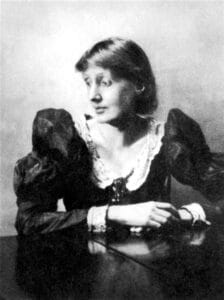
Virginia Woolf, captured in quiet reflection
She Changed How We View Mental Health
Virginia Woolf openly grappled with mental health struggles, including depression and bipolar disorder, which were often stigmatized during her era.
Through works like The Waves and her autobiographical essays, Woolf captured the emotional depths of her experiences, giving readers a nuanced understanding of mental health.
Her willingness to show her vulnerabilities inspired others to discuss mental illness. This helped destigmatize mental health issues.
Her life reminds us that creativity and mental health are linked. Acknowledging struggles can lead to great art.
She Championed the Power of Art and Literature
Woolf believed deeply in the transformative power of art and literature. As a member of the Bloomsbury Group, she surrounded herself with writers, artists, and intellectuals who shared her vision of art as a tool for understanding life and challenging societal norms.
Woolf’s essays, such as “Modern Fiction” and “How Should One Read a Book?”, encouraged readers to engage with literature critically and imaginatively.
Her work challenged the status quo. It urged people to embrace creativity, individuality, and new ideas.
For modern readers and writers, Woolf’s passion for art as a means of expression continues to inspire creativity and innovation.
She Left a Legacy of Courage and Individuality
Virginia Woolf’s life and work exemplify the courage to defy societal expectations. She lived authentically, pursuing her intellectual and creative passions despite the challenges she faced as a woman in a patriarchal society.
Woolf’s insistence on the importance of women’s voices has inspired countless female writers, including figures like Simone de Beauvoir, Margaret Atwood, and Zadie Smith.
Her bold exploration of themes like identity, memory, and time has influenced literature, psychology, and philosophy, creating ripples across multiple disciplines.
In a world still grappling with gender inequality, mental health stigma, and the need for creative freedom, Woolf’s insights remain remarkably relevant.
For Indian readers and writers, her work holds particular resonance. In a society rich with storytelling traditions but often constrained by rigid norms, Woolf’s call to embrace individuality and question the status quo is both inspiring and empowering.
Virginia Woolf changed the world by showing us that stories can be more than entertainment—they can be tools for empathy, self-discovery, and social change. Her courage, creativity, and vision continue to light the way for anyone daring to make their mark.
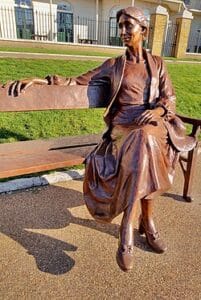
Notable Works by Virginia Woolf
Mrs. Dalloway (1925)
In this novel, Woolf examines the passage of time and the interconnectedness of human lives. Through the character of Clarissa Dalloway, Woolf provides an intimate look into a single day in post-World War I England.
“I prefer men to cauliflowers.” This whimsical line underscores Woolf’s wit and her ability to juxtapose the mundane with profound reflections on life.
To the Lighthouse (1927)
A masterpiece in modernist literature, this novel explores family dynamics, loss, and the passage of time. The narrative’s fluidity and introspective depth make it a cornerstone of Woolf’s legacy.
“What is the meaning of life? That was all—a simple question; one that tended to close in on one with years, the great revelation had never come. Instead, there were little daily miracles, illuminations, matches struck unexpectedly in the dark.”
Orlando (1928)
Orlando is a playful, deep look at gender and identity. It follows its protagonist through centuries of English history. It transitions from male to female.
“For it was this mixture in her of man and woman, one being uppermost and then the other, that often gave her conduct an unexpected turn.”
A Room of One’s Own (1929)
This extended essay is a foundational text in feminist literature. Woolf argues for women’s independence, both financially and creatively, as essential to their ability to produce great art.
“A woman must have money and a room of her own if she is to write fiction.”
Many contemporary authors credit Woolf as a major influence on their work. Her bold, experimental storytelling has inspired writers for generations. It explores complex themes.
“I can only note that the past is beautiful because one never realises an emotion at the time. It expands later, and thus we don’t have complete emotions about the present, only about the past.”
Virginia Woolf and Feminism
Virginia Woolf is often called a feminist icon. She advocated for women’s rights and explored gender and identity. Her work examined societal roles. Woolf’s essays and novels shed light on women’s struggles in patriarchal societies, especially about creativity and intellectual freedom.
Her works urge women to break free from societal constraints and embrace their potential.
Legacy of Feminist Thought
Woolf’s insights are as relevant today as they were in the early 20th century. Her eloquence and passion for equality continue to inspire movements for gender justice worldwide.
“Lock up your libraries if you like; but there is no gate, no lock, no bolt that you can set upon the freedom of my mind.”
Virginia Woolf’s works are more than literary achievements—they are explorations of the human condition. Her knack for weaving complex stories has secured her a place in literary history.

